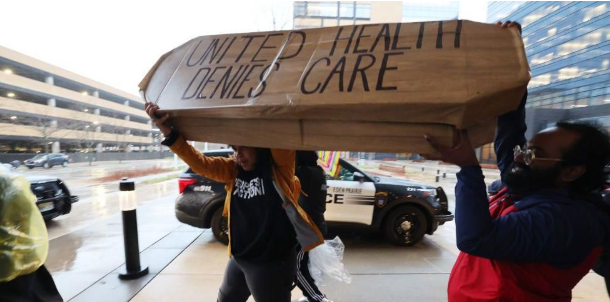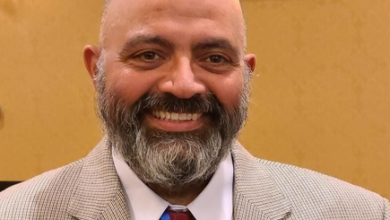Murder of Insurance CEO Exposes Growing Frustration with U.S. Healthcare System

The shocking murder of a prominent U.S. health insurance executive has cast a harsh light on the simmering discontent surrounding the American healthcare system. While the killing is under investigation, early reports suggest that the act was motivated by personal grievances related to denied medical claims—a scenario that resonates with the frustrations of millions of Americans.
The CEO, whose identity remains undisclosed pending family notification, was allegedly targeted by an individual who had faced significant challenges accessing affordable healthcare. Authorities have yet to confirm specific details, but the case highlights a growing anger at the systemic inequities in the U.S. healthcare landscape.
For years, patients and advocacy groups have criticized the complex and often inaccessible structure of American health insurance. Many cite rising premiums, high deductibles, and frequent claim denials as barriers to necessary care. These grievances have sparked widespread debate about the priorities of private insurance companies and their role in exacerbating public mistrust.
Dr. Amanda Nichols, a healthcare policy expert, noted, “The tragedy of this situation reflects a broader, deeply rooted dissatisfaction with the system. When people feel powerless in navigating essential services, it fosters frustration and, in rare cases, leads to desperate acts.”
The killing comes amid renewed discussions about healthcare reform. Policymakers are grappling with demands to reduce costs, expand access, and hold insurers accountable. Some argue for universal healthcare systems similar to those in other developed nations, while others advocate for incremental changes to the current system.
Public reactions to the murder have been polarized. Some empathize with the underlying frustration but condemn the act of violence, while others view it as an extreme but telling symptom of a broken system.
As investigators work to uncover the motives behind the killing, the incident has spurred critical conversations about the need for meaningful reform in a system that millions rely on but increasingly mistrust





